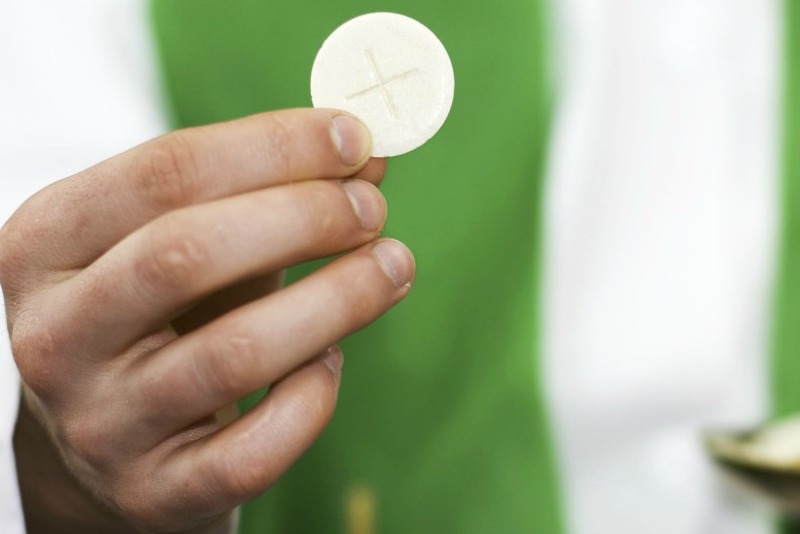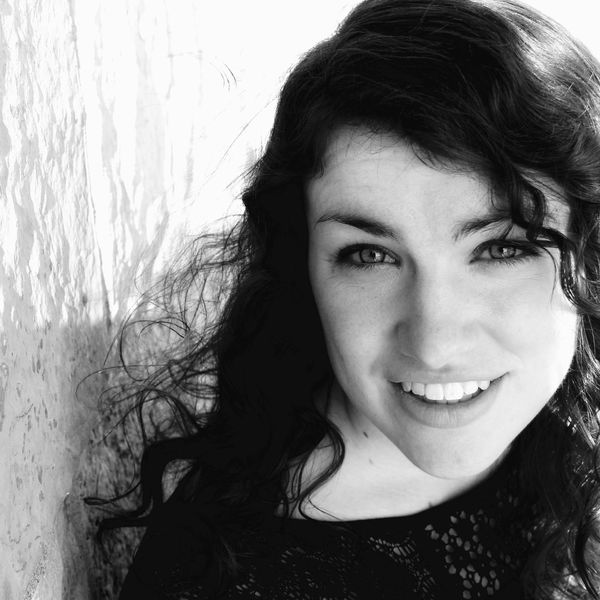“I want so much to be yours, and there is only one thing constantly in my way--that I am myself.”
--Monica, The Jeweler’s Shop, Act III.3
For the first two acts of Karol Wojtyla's The Jeweler’s Shop, the play follows the paths of two married couples. In the third act, we find that the children of these two couples--Monica and Christopher-- are now in love, and on the verge of marriage. Because of her parents’ strained union, however, Monica takes pause at the thought of marriage. Monica fears that to be drawn into relationship means the inevitable loss of one’s self.
When I read the dialogue of Monica and Christopher, I find that Monica’s doubts and misgivings resonate deeply with me. Monica seems to dwell on her own shortcomings, and on all the uncertainties the future holds. “Will it not be a mistake, my dear, will it not all come to an end?” she asks Christopher. Monica is terrified of herself, of her ability to withdraw into her own ego, to drift apart from her beloved.
Particularly in a romantic relationship, when nothing less than our very self is at stake, it seems to appeal to my sense of control to hold onto my doubts and fears rather than to surrender to love and trust. Holding onto my insecurities provides me with an illusion of control. If I focus on all the uncertainties, then I can avoid potential hurt. I can avoid the embarrassment of a romance unraveling, of finding myself unloved or unwanted, because I will have seen it coming. I will sidestep this pain, because I have the empty comfort of actually being in control all along.
As tantalizing as that illusion of control sounds, that grasping for the safe security of self is what prevents us from taking the risk of trusting, of being drawn out of ourselves, and falling in love with this radical beauty known as The Other.
As I walk forward to receive communion, I am struck by the image of Christ the Lord of the Universe descending as a humble wafer to meet me. He is constantly coming forward to offer himself. And with such abandon. He is defenseless, open to abuse, open to rejection, mistreatment, and indifference.
In answer to my fearful wavering is the little host who has just been placed on my tongue. Inside of me, if I dared to believe it, is indeed the Lord of the Universe.
The radical humility that would allow a being so majestic to enter into a space so ridiculous and unworthy as a human digestive tract is earth-shattering. As I feel the host melt on my tongue, I feel my dizzying maze of doubts and trepidations collapse under the sweetness of his utter trust in me.
It can be so terribly frustrating to share ourselves with other humans. So often, we can feel inadequate, unappreciated, or misunderstood. In those moments, I am tempted to retreat. I am tempted to withdraw. If I never share my deepest self, I will never be hurt, for I have protected myself, as Monica says, in “the circle of [my] own ego.”
As I walk to communion, I am suddenly struck by the thought:
If this host could speak, if this God came to me in a form other than bread, he could look me in the face and list all of those grievances right back at me. All the hurts that I have borne, I have inflicted upon him seventy times over. All the neglect, the sharp words, the hasty uncharities: could he not remind me of how I have inflicted all of these on him? Does he not have all of my excuses for withdrawing into myself, and then some?
Yet, in response to my rejections of him, God does not withdraw. God’s response to sin is to empty himself. He, whose nature is total gift, gave himself entirely away. Laying down all his power, the Omnipotent was crucified for us. He loved, despite the injustice of the hurts sustained. He loved, totally, completely, holding no part of himself back. He loved, despite the inability of we, his beloved, to see him as we ought. Our vision is stained by our sins. And still he comes to us.
He comes to us in the astonishing, bizarre humility of a piece of bread. A piece of bread that could tell a story of hurts received far longer and sadder than my sorry litany of grudges. Despite our clumsy, sinful reception of him, he constantly showers us with his infinite, unwearying love.
As I walk forward to receive Communion, I think: I cannot accept. I cannot accept this gift. How could I possibly shelter him whom the cosmos cannot contain?
In answer to Monica’s doubts and fears, Christopher’s only response is his love. “We must go together, Monica,” he says. “We must “challenge fate,” and love despite the challenges.
Where else will I learn to love, but here? There is nowhere else to go. This communion is a school of love I can find nowhere else.
Love that is so humble and so self-giving boggles my mind and imagination. But I have tasted its reality on my tongue. By feeding on love and goodness itself, I learn to love as he does, and mold myself into his image.
And he seeks me out to feed me, each and every day, not because I am good, but because he is.
Renée D. Roden is currently serving at Cristo Rey New York High School in East Harlem. She will be enrolling in the Master of Theological Studies program at the University of Notre Dame this fall.

